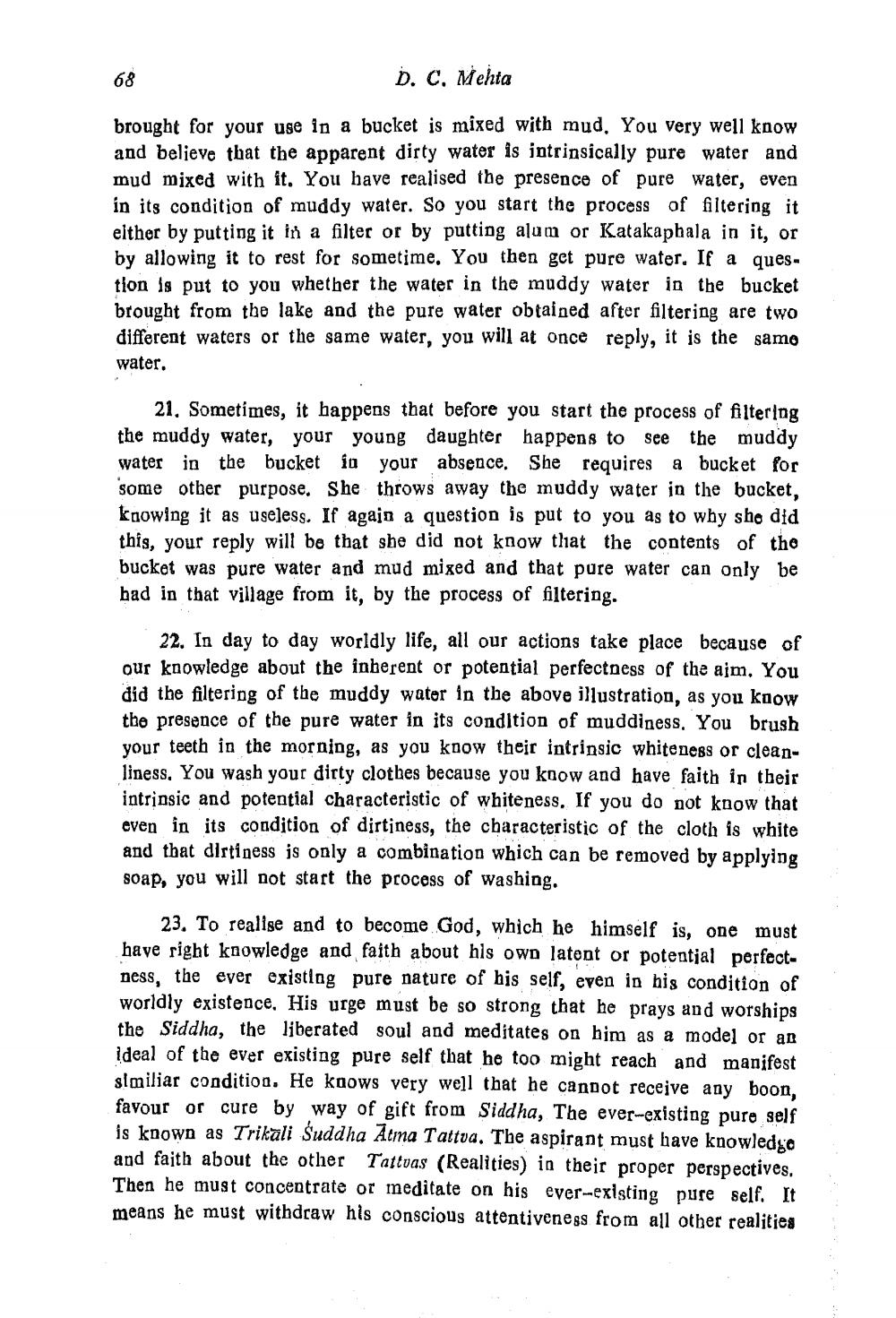________________
68
D. C. Mehta
brought for your use in a bucket is mixed with mud. You very well know and believe that the apparent dirty water is intrinsically pure water and mud mixed with it. You have realised the presence of pure water, even in its condition of muddy water. So you start the process of filtering it either by putting it in a filter or by putting alom or Katakaphala in it, or by allowing it to rest for sometime. You then get pure water. If a ques. tion is put to you whether the water in the muddy water in the bucket brought from the lake and the pure water obtained after filtering are two different waters or the same water, you will at once reply, it is the same water.
21. Sometimes, it happens that before you start the process of filtering the muddy water, your young daughter happens to see the muddy water in the bucket in your absence. She requires a bucket for some other purpose. She throws away the muddy water in the bucket, knowing it as useless. If again a question is put to you as to why she did this, your reply will be that she did not know tliat the contents of the bucket was pure water and mud mixed and that pure water can only be had in that village from it, by the process of filtering
22. In day to day worldly life, all our actions take place because of our knowledge about the inherent or potential perfectness of the ajm. You did the filtering of the muddy water in the above illustration, as you know the presence of the pure water in its condition of muddiness. You brush your teeth in the morning, as you know their intrinsic whiteness or cleanliness. You wash your dirty clothes because you know and have faith in their intrinsic and potential characteristic of whiteness. If you do not know that even in its condition of dirtiness, the characteristic of the cloth is white and that dirtiness is only a combination which can be removed by applying soap, you will not start the process of washing.
23. To realise and to become God, which he himself is, one must have right knowledge and faith about his own latent or potential perfectness, the ever existing pure nature of his self, even in his condition of worldly existence. His urge must be so strong that he prays and worships the Siddha, the liberated soul and meditates on him as a model or an ideal of the ever existing pure self that he too might reach and manifest similiar condition. He kaows very well that he cannot receive any boon, favour or cure by way of gift from Siddha, The ever-existing pure self is known as Trikali Suddha Atma Tattva. The aspirant must have knowledge and faith about the other Tattvas (Realities) in their proper perspectives. Then he must concentrate or meditate on his ever-existing pure self. It means he must withdraw his conscious attentiveness from all other realities




